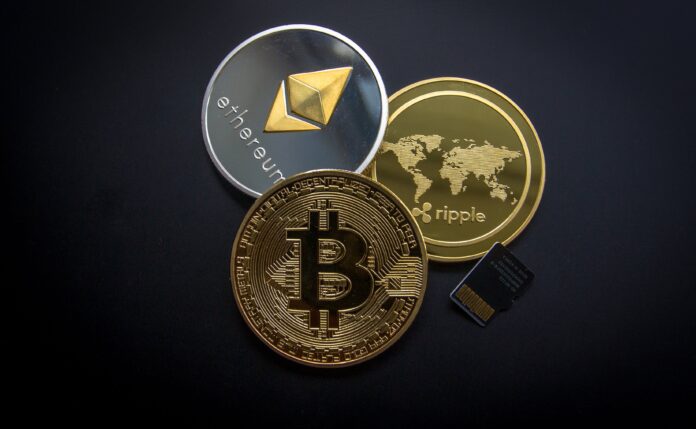
In October 2023, the UK’s Culture, Media and Sport Committee (the “Committee”) published a report on the risks posed by non-fungible tokens (NFTs) and the blockchain in the world of culture, professional sport and advertising. The report highlights the legal issues facing these sectors in the UK in the current digital landscape and the recommendations for preventative action.
Blockchain and cryptoassets; a reminder
A blockchain, a decentralised distributed ledger technology allowing for transparent, immutable data recording, is the means by which cryptoassets can be transferred, stored or traded electronically.
Cryptoassets can refer to NFTs, a data entry stored on a digital ledger which uniquely identifies a particular asset (such as an image), or other products such as utility (or ‘fan’) tokens, which allow the owner to perform specified actions on a network (such as a sports fan being able to vote on club decisions).
Opportunities through cryptoassets
The opportunities presented by cryptoassets within art, culture and sports are clear and have already been widely exploited by those working in those industries. For example, artists are minting NFTs to diversify their portfolios and using smart contracts to secure revenue from secondary sales of digital works. Going a step further, Linda Dounia Rebeiz, a Senegalese artist, has started making art NFTs by inputting her physical works into AI models to generate works reflective of her style and ultimately creating NFTs such as this for sale. The underlying technology allows Rebeiz to retain ownership of the work and profit from secondary sales.
However, the volatility of cryptoassets, such as NFTs, has been well publicised in the news over the last few years. In 2022, sales of NFTs reportedly peaked at $12.5 billion followed by a significant crash due to a number of factors (including macroeconomic and regulatory pressures), which has seen the bankruptcy of various cryptoassets exchange platforms and lenders.
In this changing digital landscape, the Committee’s report has therefore formally identified certain risks to culture, professional sport and advertising and provided recommendations on how to counteract them.
Risks to art and culture
One of those risks is copyright infringement, which the report identifies as being the most significant issue for those working in the digital art and culture industries. Successful works, such as a piece of art attached to an NFT which becomes popular and desirable amongst the public, can easily be copied without the permission of the NFT owner, given that the process of “minting” (i.e., creating) an NFT is straightforward and easily done by the public. Within minutes, various infringing NFTs can be minted and hosted across online marketplaces. NFT owners are able to file takedown notices on those marketplaces to remove infringing content, but the time and resources required to combat large-scale infringement isn’t always workable as an individual creator. The ‘immutable’ nature of NFTs and often anonymous userbase also presents technical barriers to removing infringing work from circulation and taking action against infringers.
The Committee’s report recommends: (1) that the Government engages with NFT marketplaces to ensure copyright holders can more easily enforce their IP rights and to encourage marketplaces to combat large-scale infringement; and (2) the implementation of a code of conduct for UK online marketplaces which generally aims to reduce the sale of infringing materials on platforms to better protect creators.
Risks to sport
The report highlights the increasing popularity of NFTs and fan tokens within professional sport, both for clubs and their fans, as both a positive and negative for the industry. NFTs offer new revenue streams to clubs, athletes, leagues and others in the industry by targeting those who are most willing to invest: their fans. Fan tokens can, among other things, offer supporters more tangible value through direct access to club-related privileges and membership perks, which can be extremely desirable to followers of particular sports entities.
However, the Committee warns that fan speculation as to sport-based cryptoassets can pose a financial risk to those fans who are otherwise unfamiliar with their price volatility. For instance, clubs’ marketing of their NFTs and other cryptoassets can lead fans to believe that they are equivalent to other forms of traditional club membership (such as holding a season ticket), which isn’t necessarily the case. Clubs may then face backlash due to the potential financial harm caused to fans who, in the belief that they are supporting their club by investing in club fan tokens, then suffer financial loss if the asset subsequently decreases in value.
The report recommends that the use of fan tokens should be explicitly excluded from any measurement of fan engagement in sport.
Risks in advertising
The Committee identifies the dangers of advertising NFTs to consumers, including legitimate products, due to their inherent technicality and volatility and the fact that they remain largely unregulated. Consumers are at risk of falling victim to scams and/or fraudulent action where NFTs are falsely advertised or endorsed online without regulation.
The report’s recommendation is for the Government to build a regime, based on its intended statutory regulation of online advertising, that compels the entire advertising supply chain to mitigate the risk of harm to consumers from the marketing of NFTs. This can be achieved in part through the analysis of evidence gathered on misleading and fraudulent NFT advertisements.
What’s next?
This report has voiced the growing concerns from stakeholders within the culture and sports sectors that they need further protection from the inherent risks of NFTs and related digital innovation. The opportunities for stakeholders created by NFTs, such as new revenue streams and increased fan engagement, are endangered by trends such as NFT copyright infringement, market volatility and misleading advertising. In particular, we will keep an eye on any future Government engagement with NFT marketplaces to improve conditions for IP rightsholders wishing to protect themselves from large-scale copying.
Visit our blog pages on Sport and Advertising for the latest legal insights.









